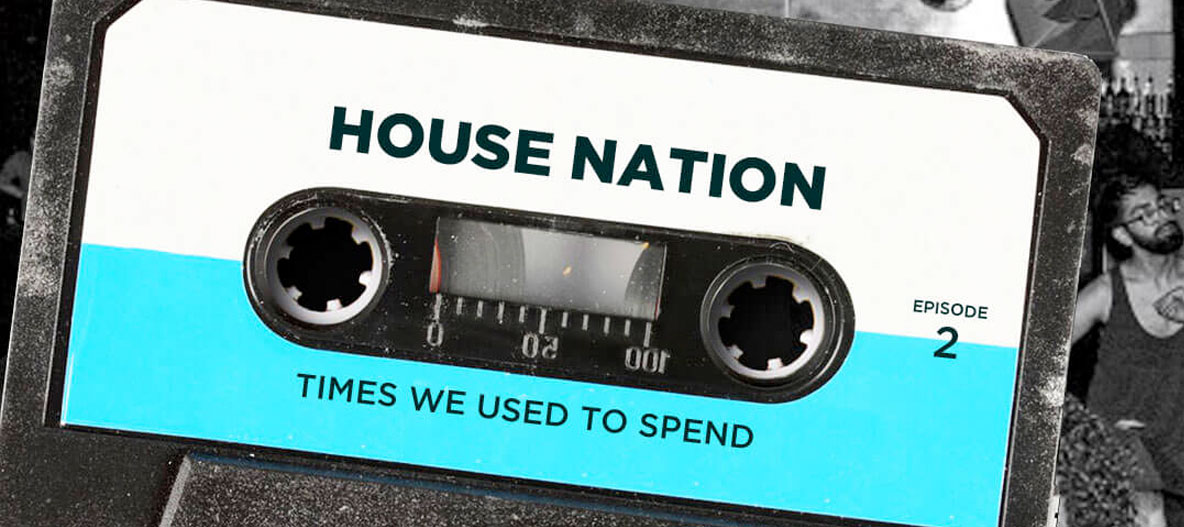Listen on The Other Radio
This episode of Times We Used To Spend documents early house through records from my collection from the 80s and early 90s.
Special thanks to Slow Motion City for the intro music. Check out his work on Bandcamp.
Track list and transcript
Welcome to episode two of Times We Used to Spend. Before we start I just want to thank everyone for the kind words I received after the first show. Thanks to everyone who messaged or left a comment. Considering the emotional content of that episode it really meant a lot.
I decided a while ago that the second show would feature house records from the 1980s and early 1990s. I also decided not to include any Kerri Chandler or Masters At Work, and also no Ron Trent and Chez Damier as they can be shows on their own. When going through my collection I ended with way too many tracks for just two hours so decided to focus on a couple per year. So we start in 1986 and end in 1992, and they are presented in chronological order. With the exception of the first one as that's where I stole the title of the show from.
Now it would be remiss of me, and particularly in this time of heightened awareness around the black lives matter movement, while people are fighting police brutality and the right not to be murdered, if I didn't acknowledge that house has its origins in the margins of the cities of the US. As music from and by the black, hispanic and gay community. Too often this is ignored. And too often the people benefitting financially from house music are not the originators. This is not to say that house necessarily belongs to anyone as a musical form. But it is important to do something about the skewed representation and economic structures it operates in in 2020. Particularly in a city like Cape Town that remains segregated, and that has power structures in the music industry that are overwhelmingly white and male. And while attention has been focussed on the US recently we do ourselves a disservice by not acknowledging the South Africans murdered by the army and police during lockdown and that over 230 000 people, largely poor, largely working class, largely black, have been arrested during this time.
Now it's easy for us, and I mean white people, to acknowledge our privilege, to post our black squares on Instagram, or a quote by Malcom X or James Baldwin. And that's fine but it's not enough. It's a meaningless gesture. Wokeness isn't going to feed anyone. I would suggest that if DJ'ing is not your primary source of income (and let's face it is it anyone's?) that you think very, very hard about taking that next paying gig. Turn it down and suggest someone in your place who isn't the same old white face. If you do take that gig donate your fee. And donate it to the club staff who are paid a pittance so you can have a good time.
Stop supporting events and promoters that book 90% white dudes and one white woman. So many events, especially the Caprice goes to the countryside festivals type, are anachronistic throwbacks to a whiter time and should not be given the time of day. I mean one of them even had a celebration of colonialism. Don't accept bookings to them. Don't attend them. Call them out publicly even if it means you lose bookings. Get involved in civil society. Work actively to dismantle repressive structures. Force change. Don't be on the wrong side of history.
DA Rebels – House Nation Under A Groove - Clubhouse Records (1989)
DA Rebels - D.I.U. (Deep In Underground)
We're listening to House Nation Under A Groove by Da Rebels an early track from Chicago. 1989. Clubhouse Records. Da Rebels were Curtis Alan Jones, also known as Cashmere and Green Velvet and founder of Relief Records, and Liddel Townsell. Liddel made quite a few early house tracks in the 80s. Of course it's referencing Funkadelic One Nation Under a Groove. This was re-released in 1997 with a Harvey remix that's well worth tracking down. It's a really fantastic track.
Fingers Inc – Mystery Of Love (Club Mix) - DJ International (1986)
Fingers Inc. - Mystery Of Love
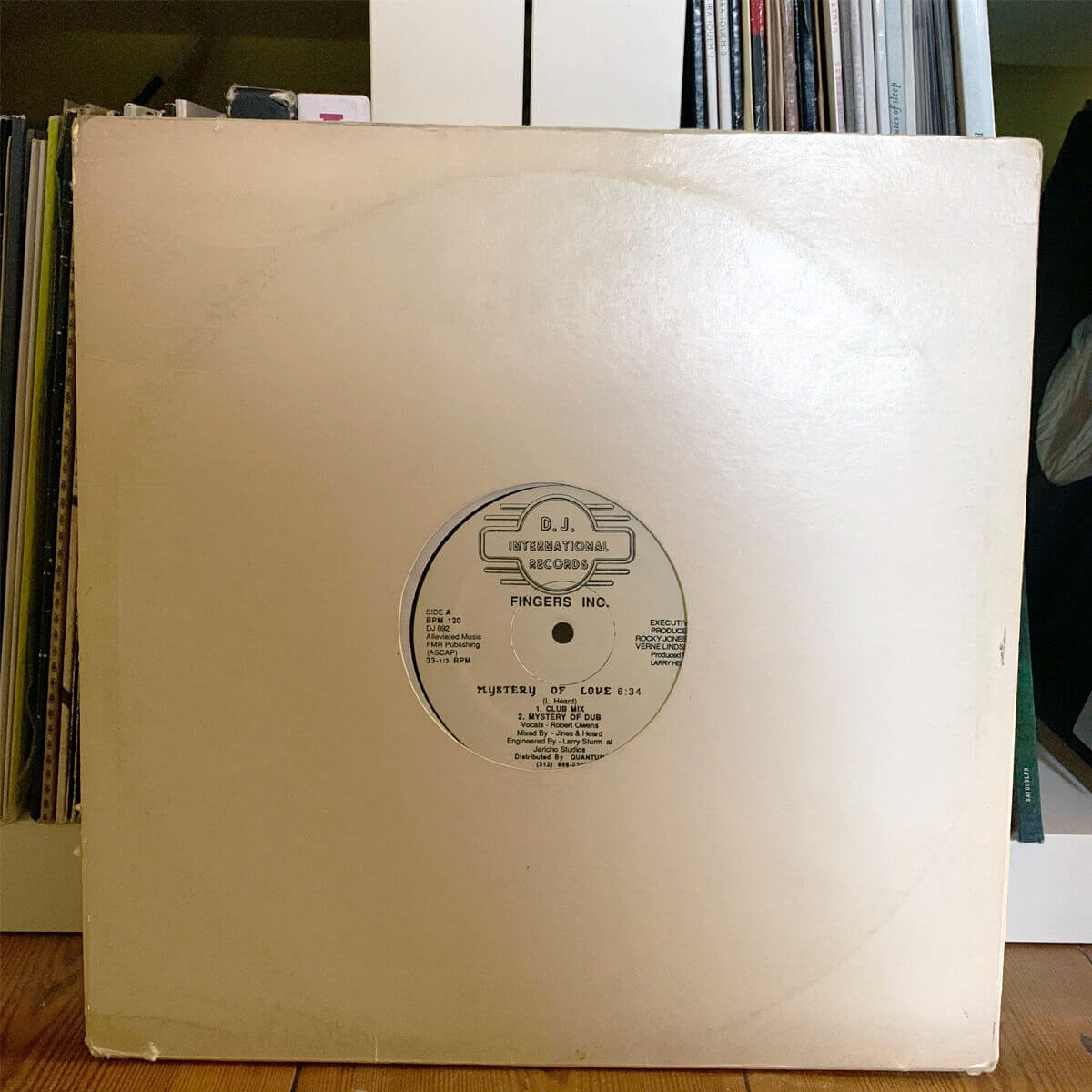
"When you find a new beginning, the feeling takes control." We're listening to Fingers Inc. Mystery of love the club mix on DJ International Records that came out in 1986. A massively influential track. Larry Heard with the legendary house vocalist Robert Owens. Yeah, there's not much to say about this. It's just one of the greatest house tracks of all time and also one of the first really, and we're looking now at 35 years ago, quite amazing that it still sounds so fresh and up to date. Larry Heard would go on to be called deep house and all of that but deep house is really a kind of terminology that came in much later. House was just house for a long time.
Mr Fingers– Washing Machine - Trax Records (1986)
We're still listening to Larry Heard but this time in is his Mr. Fingers guise and the track is Washing Machine. It's also from 1986. It came out on Trax Records. They had notoriously bad pressings so this one's a little bit softer. I tried to fix it up as much as I could but...yeah anyway. So this release had the original version of Can You Feel It which everyone knows I'm sure. The original didn't have the vocal on it. You know, the "whole house is a feeling, in my house, we are all the same" etc. That only came much later. Well I say much later around two years later, and there was the Martin Luther King speech that was put on that as well. So the original Can You Feel It was actually an instrumental. But I always really loved Washing Machine, the 303s and little bit of acid feel to it and it feel slows but it's not really slow and just really pulls you in via the repetition. It's just an amazing track again. Larry Heard proper genius.
Phuture – Phuture Jacks - Trax Records (1987)
We're still in Chicago. It's 1987 and this is the first release by Phuture called Acid Tracks and that's where the term acid house comes from. A bunch of 303 workouts. Two tracks on here that were really massive at the time and got all the attention which was the title track Acid Tracks and the B2 Your Only Friend. But for me, the really great one is the one we are listening to now called Phuture Jacks. Lots of house records at this time word "jack" in it or "house" or "my house" or, you know, "jack to the beat" and so on. All these compilations that came out and it was almost like a rule that you had to include, you know, a reference to jacking which was of course dancing in your track title.
So Phuture weren't around for that long before DJ Pierre left. He left in 1990 went to New York and started doing different stuff. But yeah, I mean, so influential this record, the birth of acid house, and which of course became so huge in the UK. And a lot of the acid tracks that were produced later were in vast numbers coming from the UK, rather than the US so much. Again, it's hard to believe that this record is 33 years old. There is this incredible baseline on it. Unlike the other two which have a more emphasis on the 303 and the high hats. Hear this loud and it's mind blowing.
Blake Baxter - In This House We Jack - Westside Records (1989)
So we are moving around 450 kilometres to the east to Detroit for this track by Blake Baxter, affectionately known as the prince of techno. This is an early house track of his in which he manages to get the words "jack" AND "house" in the title. In this house we jack. I have this on a compilation called Jack Master Four. There we go. "Jack". It came out In 1989, and it doesn't appear anywhere else other than on this compilation which you can pick up on Discogs - I'm looking at it right now - for 21 rands and 40 cents. So Blake Baxter from Detroit. I thought a lot more Detroit records would pop up when I was going through things and selecting records but that really wasn't the case. It was only really this one that I decided to play. I'll do another show on Detroit techno at some point.
What's interesting about this track is it's got that kind of house is for everyone notion to the lyrics and it's something we find quite often in these early house tracks. House is a feeling, house is a place for everyone, house is an emotional refuge, all that kind of stuff, and we see it in the names of clubs - Paradise Garage, Sanctuary, Shelter. This points to contextual moments of that time of house as an escape from the politics of the day and a place of safety, quite different for like marginalised people in the US as it might be to white Europeans in Berlin or a bunch of Capetonians in fancy tents in the countryside. This was this feeling that house is universal, but it isn't really. There's a very strict contextual moment to it. And we are kind of remiss if we don't acknowledge that and if we're not aware of that, that this particular meaning to things and things happen in context, always.
Landlord - I Like It (Blow Out Dub) - Bigshot Records (1989)
Landlord (2) Featuring Dex Danclair - I Like It
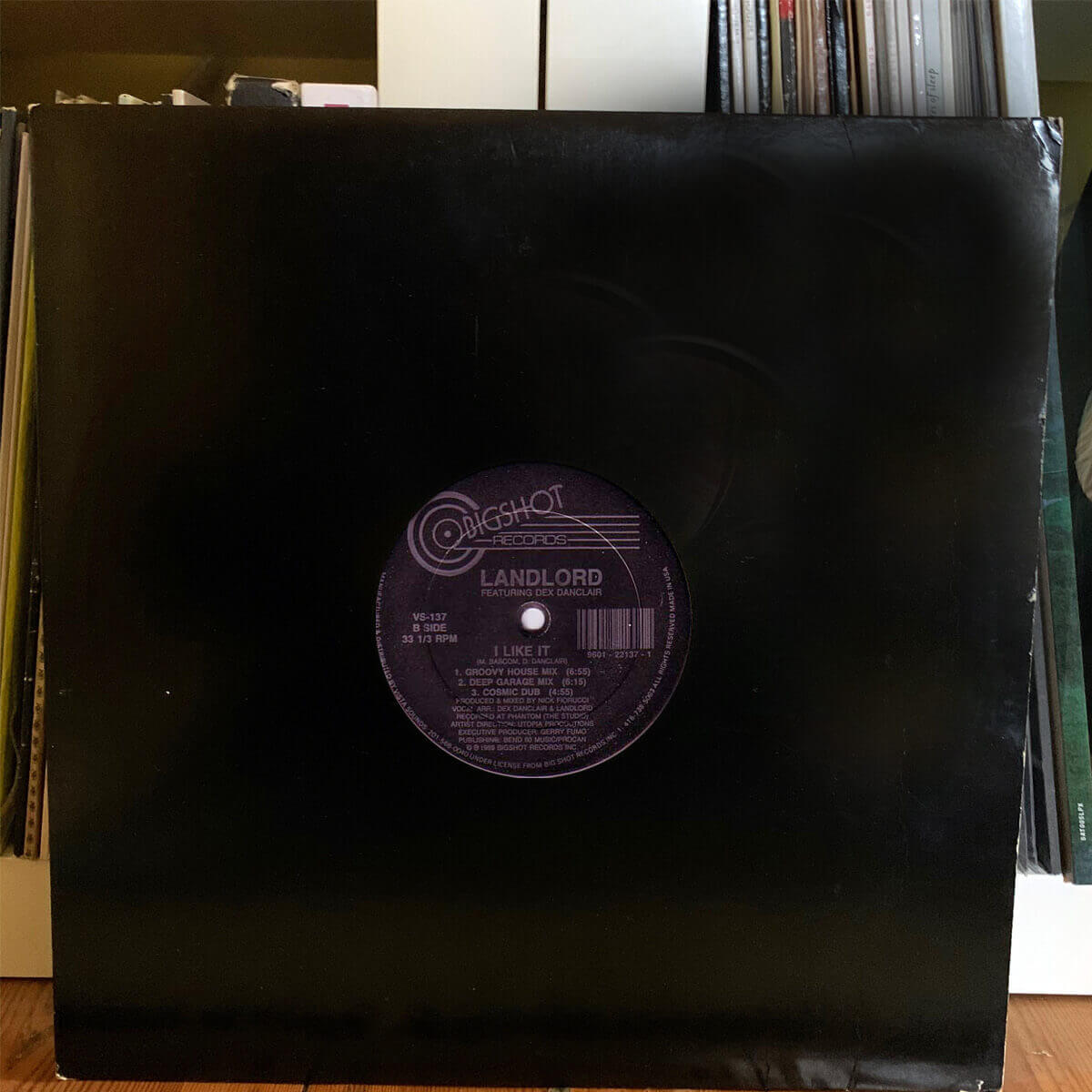
The Blow Out Dub of I like It by Landlord. Landlord was Nick Fiorucci and this time we're in Toronto, Canada. This came out in 1989 on Big Shot records and has more of a rave era sound to it. A very often copied track. There's a lot of arguments about who did this piano riff first because it's quite similar to Inner City's Good Life, and there's a track by Nitro Deluxe called, it's escaping me. brutal, brutal, let's get brutal something like that. People argue about who used it first, etc. Nevertheless, it's just a really, really great track, rolling along with that bass and stabs over the top. Another one that you really need to hear loud. The Blow Out Dub was re-released in 2019 or something like that. A pretty rare record, now readily available.
Essence - Just A Touch (Jazz Element Mix) - Strictly Rhythm (1990)
It's 1990 and we are now in New York. And we are listening to a track by Essence called Just A Touch, the Jazz Element Mix which came out on Strictly Rhythm. One of the most important house labels of all time. Essence was Wayne Gardiner who also recorded as Classic Man, Logic, etc. Really, highly influential, important figure in the early New York house sound. He didn't release a bad track. For me, this is a really important house music release. It's one of the first tracks that had this shuffle feel to the beats as opposed to your Chicago house that was very rigid, very straight four four, a lot rawer as well. Whereas this is quite silky, almost smooth and gentle in a way, as opposed to that kind of rough and ready Chicago sound. You can see the stylistic differences very clearly between New York style house and Chicago and again Detroit which is also very different.
That becomes particularly clear when you listen to people like Kerri Chandler and Masters at Work, and the New Jersey house sound as well. But in this track you can also hear the influence of Larry Heard and Mr. Fingers, particularly in the bass, in those stabs that come in now and then, in the synths. Just a really important record and on a really, really important label.
The Underground Solution - Luv Dancin' (Egotrip mix) - Strictly Rhythm 1990
The Underground Solution* - Luv Dancin'
I almost feel bad talking over this one. What an incredible record. This is The Underground Solution, Luv Dancing. And it's the Egotrip mix. Also on Strictly Rhythm. Also released in 1990. And by Roger Sanchez, or Roger S as he was known at this time, and before he went all tribal house Ibiza cheesy. Interestingly, it samples a track that was huge at the Paradise Garage and also remixed by Larry Levan, which is Loose Joints' Is It All Over My Face, making these connections between New York's past and present at this time, just an amazing overall track.
DJ's Rule – Get Into The Music (Ambient Cult Mix) - Hi-Bias Records (1991)
DJ's Rule - Get Into The Music (The Serious Remixes)
So earlier we listened to a track by Landlord, which is Nick Fiorucci and this is also Nick Fiorucci, but this time under his DJs Rule guise. And we are still in 1991. It's called Get Into the Music. Unsurprisingly, given the vocal. This is the ambient cult mix. Interestingly, this contains a mix called the Cyber mix, which was one of the first by Daniel Bell, John Aquaviva, and a certain Richie Hawtin. It's rubbish though. Don't worry about it. This is the one you want. People debate this as well because it sounds very similar to a mix of a really famous MK track called Burning and they were both released in the same year. So no one really knows which one came out first, but it's up for some debate, not that it really matters. We'll listen to the MK track next.
M.K. – Burning (DeKalb mix) - Area 10 - (1991)
So I'm sure we can discern the similarity between this and the DJs Rule track we listened to before this. The bassline is almost identical. Not that it matters. So MK Burning. This is a really famous house track. This is the Dekalb mix which is the one I like the most although there are a ton of them. This had a massive influence on UK garage as I'm sure you can hear and will hear a little bit later on towards the end of the track with the skittering beats and cut up vocals, which became a staple of two step in the late 90s. People like Ramsey and Fen and Dem 2 and so on in the UK garage and two step scene.
MK released a bunch kind of amazing house records in the early 90s. This is from 91. And did a bunch of really incredible remixes as well. And then he moved to LA and he started working with Will Smith on like cheesy hip hop records and now he does remixes for Katy Perry and stuff like that, which is fine, whatever. I'm glad he's making a living out of his music. But the stuff he did in the early 90s will always remain some of the best house music ever and he should be remembered up there for these with the likes of Masters at Work, Kerri Chandler, Larry Heard and so on.
Aphrodisiac – Song Of The Siren (Mediterranean Mix) - Nu Groove Records (1990)
Aphrodisiac - Song Of The Siren
So I see this one actually came out in 1990, even though I had 1991 in my notes, anyway, no matter. This is Song Of The Siren by Aphrodisiac and we're back in New York. This is the Mediterranean mix and it is by Ronald Burrell, also known as one half of the Burrell Brothers with his brother Reggie, in turn known more famously as New York Housing Authority. They released a bunch of tracks in the early 90s, late 80s maybe. This one came out on Nu Groove Records, which was also a really important New York house label. It's very much what people would call deep house today. But as I mentioned earlier, there was no such term at this time. Just house. These elements just really work so nicely together the ocean, the intro, baseline, the keys, the voices. Just a really beautiful track.
So this was reissued a few years ago and I bought the reissue forgetting that I had the original like an idiot. I have given the reissue to The Other Records so if you're looking for this maybe it's still on the shelves. Ask them about it.
Pal Joey - Flight 801 - Loop 'd Loop (1991)
One of my absolute favourites Joseph Longo under his Pal Joey guise. We are in 1991 we're in New York still. This is from his release on his own label Loop 'd Loop and it's a record called #3. This is the b-side Flight 801. The a-side is also fantastic called Spend the Night . So Joseph Longo. Pal Joey. He also recorded as Beautiful People, Dream House, Earth People and a whole bunch of different aliases.
As well as producing amazing house records, he also worked with hip hop people like Boogie Down Productions and KRS1. He worked with Sade and Deee-lite. Really amazing producer / engineer / musician. He doesn't get nearly enough credit as he should. So a lot of these tracks have actually been re-issued in the last couple of years. If you are looking for this kind of thing shouldn't be too hard to track down.
Sound Waves - I Wanna Feel The Music (Smooth Mix) - Strictly Rhythm 1991
Sound Waves - I Wanna Feel The Music / Gotta Have You
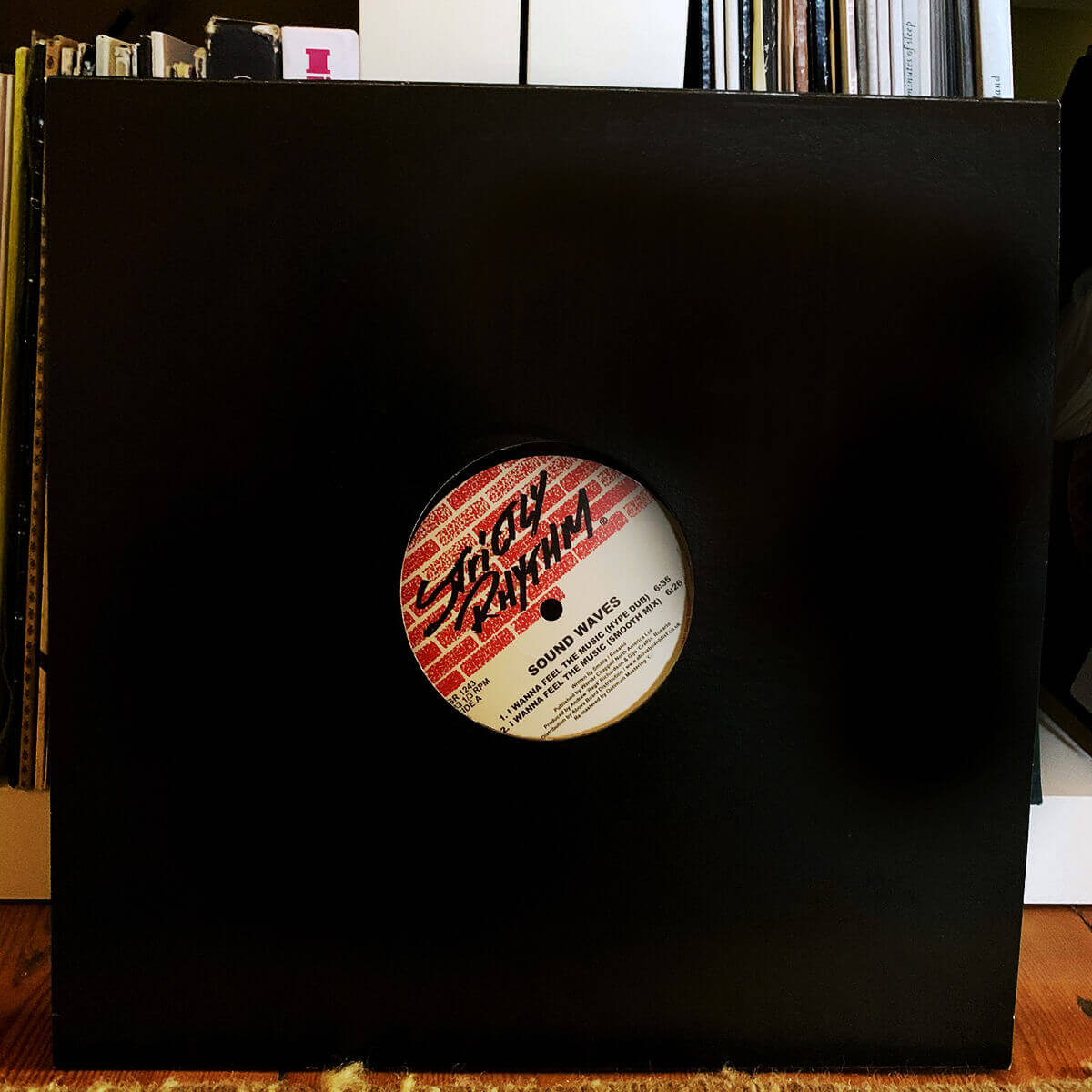
Another classic Strictly Rhythm record, this time the Smooth Mix of I Wanna Feel The Music by Sound Waves. Sound Waves was Andrew Richardson. He released a couple of tracks on Strictly Rhythm. Luv Dancing earlier and this for me share a similarity in terms of the feel, just a few elements that come together and create a whole that's way more than the sum of its parts. Simple and instruments as elements and textures, tracks rather than songs, which is what we want our house records to be.
Well I should say it's what I want my house records to be.
The Tone – Early To Rise (Early Morning Mix) - Bass Boy Records (1991)
This is kind of a throwaway track to be honest. Still 1991 it's The Tone Early To Rise and the Early Morning mix. It's just a little bit of fun loopy house that obviously samples Gypsy Woman. I just like it. It's okay. Nothing spectacular, came out on the rather badly named Bass Boy Records and was produced by Tony Rodriguez, who is better known as one half of the Brothers Vibe who make kind of boring generic house records but I like this one. It's fun and sometimes we just want to have fun right?
Groove Asylum - In the Air - Nervous Records (1991)
Groove Asylum (2) - The Groove Asylum
This is In the Air by Groove Asylum. It came out on one of the three really important house labels in New York at this time which were Nu Groove, Strictly Rhythm and Nervous. There were other ones Shelter, King Street, Ibadan a bit later, but those are really the three super important ones I think around this time. Remember, we are still in 1991. I really love this track. It just brings together a whole bunch of disparate elements and has this real swing to it. And again, textures rather than virtuoso playing or anything like that.
There's nothing worse for me in house music than when people start thinking they need to be, and I put this in quotation marks, "real" musicians. That's what brings us all that terrible, early 2000s soulful house music with Kenny G sound-alikes, and really terrible lyrics and people telling us how deep they are. It's really terrible, terrible stuff. What's really great about early house music is that it's all made on machines, and no one's trying to deny that. There's no like, "Oh, we must get the band in" and folly like that. It's just this is machine music, let's embrace that, and this is what we get. And this track is really a great example of that.
Logic - Celebrate Life (Soundshaft mix) - Strictly Rhythm (1991)
Logic - Celebrate Life / One Step Beyond
So I'm aware that during the previous track I railed against this concept of "real" musicianship in house music and now suddenly I am here playing this track with this flute. It can be a terrible instrument. But in this case, as in the previous track, the instrument is textural rather than a dominating thing. It's not someone doing their interminable solo after the chorus or some nonsense like that, it's still a track rather than a song. We listening to you here is the Soundshaft mix of Celebrate Life by Logic.
So Logic was a bunch of people at different times. It was Wayne Gardiner, who we heard from earlier. It was Roger Sanchez, who we also heard from earlier and it was also Edie Maduro, who was an engineer on a lot of the Strictly tracks. And of course we are still on Strictly Rhythm and we are still in 1991 and this is kind of the peak of Wayne Gardiner and Roger Sanchez productions . There's not much to say about it. It's an amazing amazing record.
The acapella of this track - "Music is the basis basis of all life. Without music we have no meaning, no joy, no soul" - was sampled a couple of times by drum and bass and jungle producers. Nookie and Mystic Moods. I'll play those when I do a jungle show.
Michael Watford Holdin' On (Original Shelter Mix) - Atlantic (1991)
I really didn't intend this to be the Roger Sanchez show but here we go. This is another production by him. I mean, he's become such a cheese master now, but really his early productions are just amazing. Absolutely incredible. This is Michael Watford who's a gospel singer. And it's called, unsurprisingly Holding On. It came out on Atlantic Records a major label in 1991. Man, it's super cheap. I can't believe it's like 30 rand to get this on Discogs. That's crazy. It's such an amazing record.
I don't usually go for vocal tracks. Prefer instrumental stuff or vocals that are sampled and cut up and textural, as I keep saying rather than singing. But this is record really captures the kind of yearning moment of house and house as a space of shelter. I mean this mix is called the Original Shelter Mix the club where it was that it was made for, and where it was played was called The Shelter. And it was real sense of house as a safe space, away from the kind of repression and oppression of the politics of the time. I hesitate to ever use the term timeless because music isn't timeless. It's contextual. This is one thing that you can listen to and it kind of transports you no matter where you might be. This track is a good contender for that.
After Hours - Waterfalls (4am mix) - Strictly Rhythm (1991)
After Hours - Waterfalls / Feel It
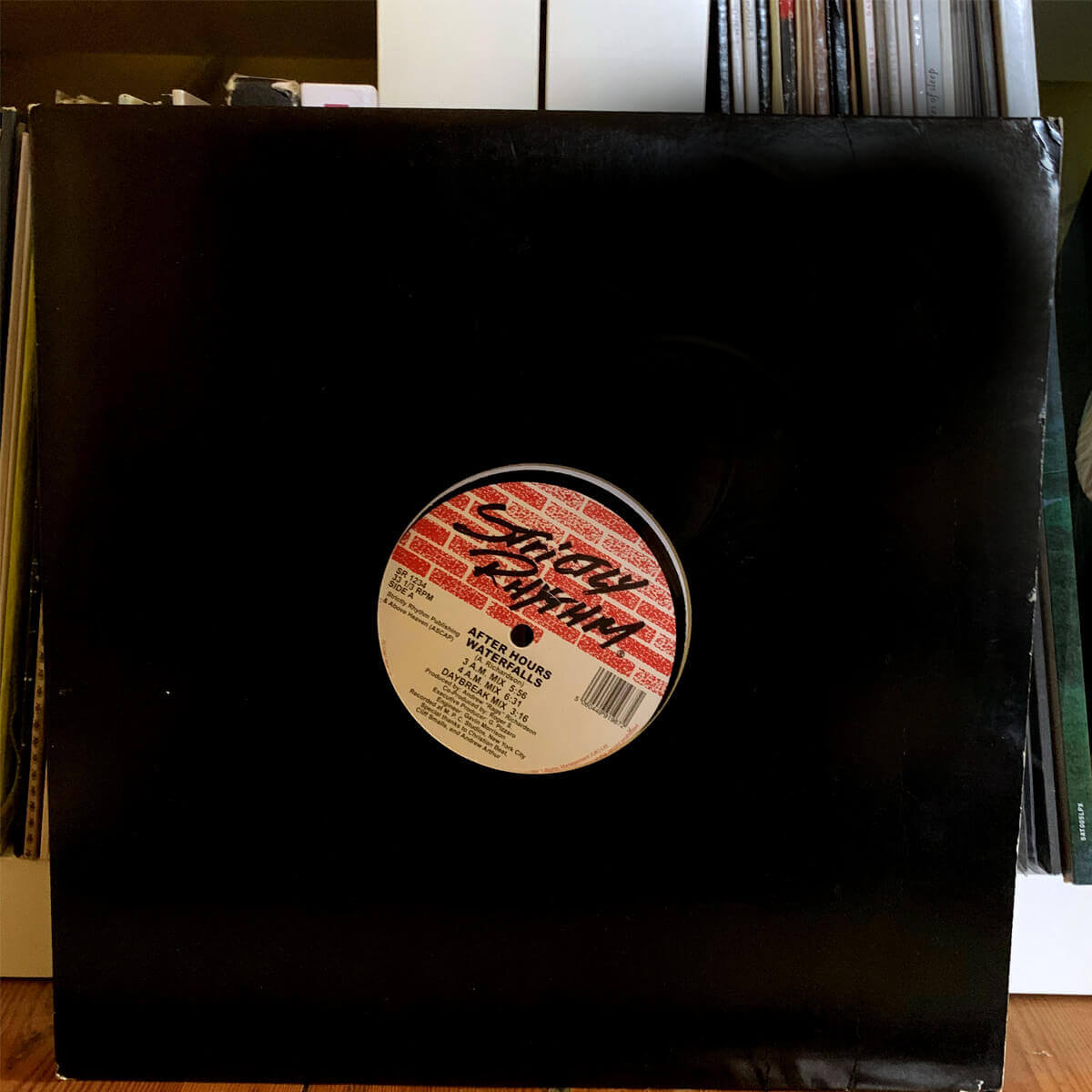
It's another Andrew Richardson production under his After Hours alias. Oh and look, co-producer Roger Sanchez. Yeah, it really wasn't meant to go this way. This is called Waterfalls and it's the 4am mix. Again it's Strictly Rhythm 1991. Yes. Wow. Another amazing record. I mean, I don't know what else I can say about these tracks. They all share a certain sensibility. And maybe this is the best one of them all. I'll let you decide
Classic Man - 5th Street Orchestration (Sweet Ambience Mix) - Nervous Records (1992)
Classic Man - 5th Street Orchestration / Here's The Sample
Another Wayne Gardiner production this time on Nervous Records, and under his Classic Man alias. It's called Fifth Street Orchestration and it's the Sweet Ambience mix. Another beautiful, beautiful track. This kind of rolling bass-line, pianos overlaying that, the high hats coming in and out, voices overlaid. I'm going to say it again, textures and tracks rather than songs. And the sample is from a Peech Boys track called, Don't Make Me Wait, which was a favourite of Larry Levan at the Paradise Garage. Think he remixed it as well. I'm not sure about that. Again, we see these connections being made between the present time of New York house and its past and seeing everything in context.
Agent-X - Stacey's Track - Night Groove Records (1993)
Agent-X - Groove Tracks Vol. 1
And so we come to the last track for the show. This is Agent X Stacy's track. It's from 1993 and it's by Mike Clark. I thought we'd end off by going back North from New York and now we're in Detroit. This is a little bit more energetic than the kind of New York tracks that I've been playing which are a little bit slower. A little bit deeper for want of a better word. Not the best word to describe music is it, "deep"? This has got a nice jaunty feel to it. And showcases again, stylistic differences as you move around the cities of the US and we see this happening as house becomes a global phenomenon with different takes that occur all over the world, including in South Africa.
Well, that brings us to the end of Show Number Two. I hope you enjoyed the music. One thing I tried to do here was to play and introduce records that are not that hard to get hold of. So they're not super obscure $500 Discogs records. A lot of them have been repressed and they're fairly easy to get hold of. So if you liked any of them, I hope that you can find them.
And I hope we also start making changes in our music scene and our interactions. And real systemic change not window dressing.
Times We Used To Spend is a two hour ramble through my record collection making connections between eras, genres, melodies and rhythms.
Listen on The Other Radio
